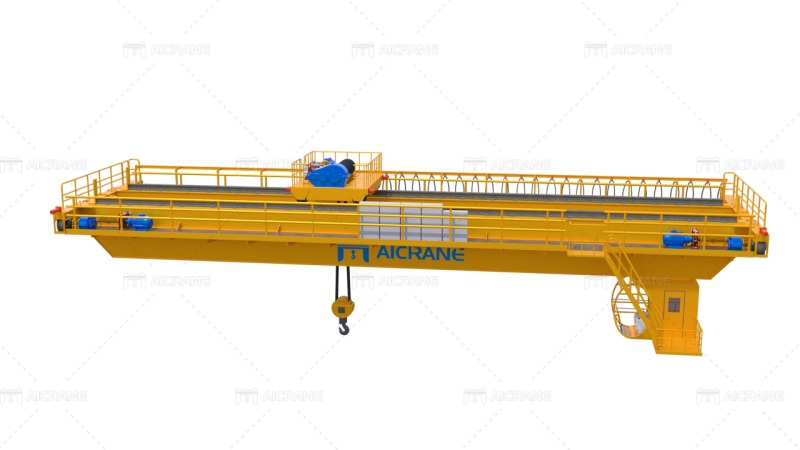


Double girder bridge cranes offer superior lifting capacity, durability, and safety, making them essential for heavy manufacturing operations.
In the demanding world of heavy manufacturing, the efficiency, safety, and reliability of material handling systems are critical. Double girder bridge cranes have become a cornerstone in this industry, offering unparalleled lifting capacity, operational flexibility, and durability. Whether it’s in steel mills, automotive plants, shipyards, or power plants, these cranes are indispensable tools that drive productivity and ensure the smooth handling of heavy materials and equipment. This article explores the key reasons why double girder bridge cranes are essential for heavy manufacturing.
One of the most significant advantages of double girder bridge cranes is their superior lifting capacity. Unlike single girder cranes, which typically support lighter loads, double girder cranes are designed to handle extremely heavy loads, often exceeding 50 tons. This capability is crucial in heavy manufacturing industries, where large and heavy components must be moved with precision.
The dual girders provide a stable platform, allowing for the even distribution of weight across the crane’s structure. This stability reduces stress on the crane and the building structure, minimizing the risk of accidents and equipment failure. The robust design also enables the crane to handle multiple lifting operations simultaneously, increasing efficiency in environments where time is of the essence.
Double girder bridge cranes are known for their ability to cover larger spans and heights compared to single girder crane machine types. This feature is particularly beneficial in large manufacturing facilities where materials need to be transported over long distances or lifted to significant heights.
The design of double girder cranes allows for the placement of the hoist between the girders, which maximizes the available lifting height. This configuration is ideal for applications that require lifting heavy objects to substantial heights, such as in assembly lines for large machinery or in the construction of heavy industrial components.
Heavy manufacturing environments are often harsh, with extreme temperatures, dust, and continuous operation that can wear down equipment over time. Double girder bridge cranes are built to withstand these challenging conditions. Their rugged construction and use of high-strength materials ensure that they can operate reliably under the most demanding circumstances.
The dual-girder design also contributes to the crane’s longevity. By distributing the load across two girders instead of one, the stress on each girder is significantly reduced, leading to less wear and tear over time. This durability means that double girder bridge cranes require less frequent maintenance and have a longer operational life, providing a better return on investment for manufacturers.
Another critical factor that makes double girder bridge cranes essential in heavy manufacturing is their operational flexibility. These cranes can be customized to meet the specific needs of different manufacturing processes. From the type of hoist used to the control systems and additional features like load cells and anti-sway technology, double girder bridge cranes can be tailored to optimize performance in various applications.
For instance, in an automotive manufacturing plant, a double girder bridge crane might be equipped with specialized lifting attachments to handle large engine blocks or chassis components. In a steel mill, the crane could be designed with heat-resistant materials to operate near furnaces or in high-temperature environments.
This level of customization ensures that double girder bridge cranes can seamlessly integrate into complex manufacturing processes, enhancing productivity and reducing the likelihood of operational bottlenecks.
Safety is paramount in heavy manufacturing, where accidents can have catastrophic consequences. Double girder bridge cranes are equipped with advanced safety features that protect both workers and equipment. These features include:
These safety features are crucial in heavy manufacturing environments, where the movement of large and heavy objects requires precise control and constant vigilance.
